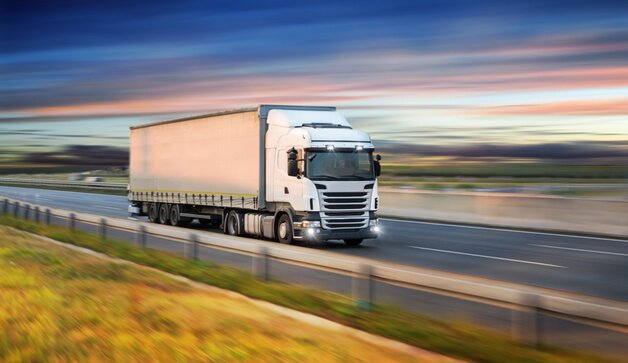
Any transportation business with trailers of their own needs to make the right investment when choosing a trailer to add to their fleet. They are quite expensive and require heavy maintenance[1], so the cost of purchase needs to be in line with the potential ROI.
In order to do that though, it is important that the following three primary options are explored thoroughly, before making an investment. Not only will it harm productivity if a wrong vehicle is purchased, but the affected productivity can actually lower the ROI to the point of suffering losses on account of that particular trailer.
-
Flatbed Trailers
The flatbed is unmatched in its ability to carry as much as 48,000 pounds of heavy machinery and equipment. There is no protection from the elements here, as there are no sides or even a roof on a flatbed, which makes room for easy loading/unloading of heavy goods. The type of goods these trailers generally carry do not usually require such protection either, or they are sealed in their own boxes securely.
The industrial-grade flatbed trailers that carry the heaviest loads would in most cases be a lowbed[2]. As the name suggests, the lowbed has a much lower deck height, which significantly improves loading/unloading ease and speed. The lowered deck height also makes low bed trailers perfect for hauling exceptionally tall equipment. Second-hand low bed trailers make more financial sense, provided you can verify the quality first.
-
Dry Van Trailers
The most common and economical choice of trailers used across multiple industries is the classic dry van. The closed box trailer without weather control facilities is ideal for transportation of any and all goods that do not require temperature control. This includes but is not limited to clothing materials and products, plastic products, paper, building materials, most electronics, metallic products, etc.
The covered box still provides protection against physical damage and the direct effects of external and adverse weather conditions such as rain or snow. They may not be ideal for temperature/humidity sensitive product transportation, which includes food, beverages, plants, seeds, flowers and the like.
-
Weather-Controlled Trailers
Also known as refrigerated trailers, weather-controlled trailers have sophisticated, in-built weather control systems[3] inside them to allow temperature and humidity control with perfect precision. Other than the weather control, these are the same box trailers as dry vans, but they have a much wider application and come at a higher price.
Due to the added price, the only businesses to buy them are the ones that deal with transporting food, beverages, flowers, crops, volatile chemicals, specific electronic devices or anything else that requires weather-sensitive transportation.
Aside from these three, there are also Step Decks, Double Drop Decks, Conestoga trailers, RGN trailers, and tankers. However, unless one is working in an industry that makes any of those a more relevant choice, these three usually covers a majority of the transportation industry’s needs.








